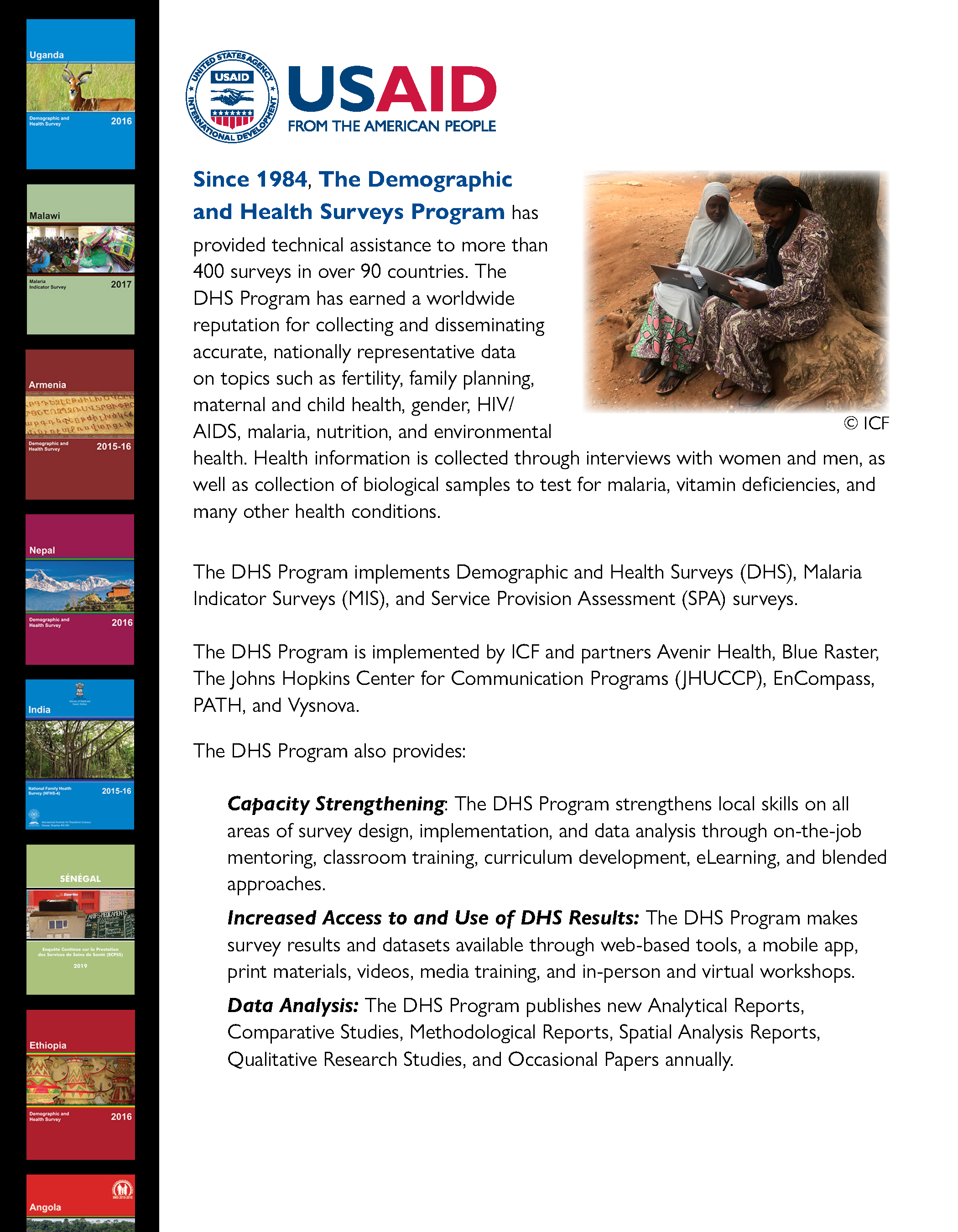Press Releases
Contraceptive use increasing worldwide; knowledge of modern methods universal; new DHS report updates status of family planning in 35 countries
Calverton, Maryland - Across the developing world, women's knowledge of modern family planning methods is high, and use of modern methods is increasing, according to a new report analyzing data from the Demographic and Health Surveys (DHS). Contraceptive Trends in Developing Countries reviews recent survey results from 35 countries in Asia, Africa, Latin America, and Eastern Europe. The report's findings verify that investments in family planning programs over the past decades have paid off and continue to help women and their families around the world.
Contraceptive Use
Contraceptive use among married women has been steadily increasing in most countries. In Egypt, for example, 57 percent of married women reported using modern contraception in 2003, up from 36 percent in 1988. Even more dramatic increases have occurred in Haiti, where modern method use jumped from 13 percent in 1994 to 35 percent in 2005/06.
Use of modern contraceptives varies greatly among the surveyed countries. Latin America countries report the highest contraceptive use with 78 percent of married women using modern methods in Columbia and 69 percent in Peru and Nicaragua. Rates are somewhat lower in Asian countries. Just under 60 percent of married women rely on modern methods in Indonesia, Vietnam, and under 50 percent in Bangladesh.
Contraceptive levels remain substantially lower in sub-Saharan Africa, particularly among rural and less-educated women. Rates range from 5 percent in Mauritania to 43 percent in Namibia. Eight countries in sub-Saharan Africa, most in West Africa, have rates of less than 10 percent.
Injectables and oral contraceptive pills are the most widely used methods in sub-Saharan Africa and Asia. Female sterilization is increasingly common in Latin America and the Caribbean, ranging from 3 percent of married women in Haiti to 46 percent in the Dominican Republic. More than one-third of married women in Egypt, Uzbekistan, and Vietnam use IUDs. Less than 5 percent of women rely on male condoms for contraception in 28 of the 35 countries studied.
Knowledge and Approval
More than 90 percent of married women in most countries can name at least one family planning method, a marked achievement over the last two decades. Still, knowledge of multiple methods and of potential side effects of modern methods, however, remains considerably lower, particularly in sub-Saharan Africa.
Approval of family planning use is widespread in most countries. More than 85 percent of married women in all Asian, European and North African countries approve of couples' use of family planning. Approval of family planning is increasing in most sub-Saharan African countries but still remains less common than elsewhere.
Despite the increase in modern method use, most women still do not discuss their family planning choices with their husbands or partners. Spousal discussion of family planning ranges from a low of 7 percent in Nigeria to more than 40 percent in Bangladesh, Jordan, and Vietnam, to a high of 63 percent in Jordan. Discussion is lowest in sub-Saharan Africa.
About MEASURE DHS
Administered by Macro International Inc., the MEASURE DHS project helps developing countries collect demographic and health survey data by conducting individual interviews in peoples' homes. DHS surveys are nationally-representative surveys of 5,000 to 30,000 households. Long considered the "gold standard" for measuring health and HIV/AIDS status in developing countries, the DHS program is funded by the U.S. Agency for International Development and the Office of the Global AIDS Coordinator with major contributions from other donors, including UNICEF, UNFPA, the World Bank, the Gates Foundation, and the government of Great Britain. International organizations, including UNAIDS and the World Health Organization, regularly incorporate DHS data into their reports and analyses of health issues.
